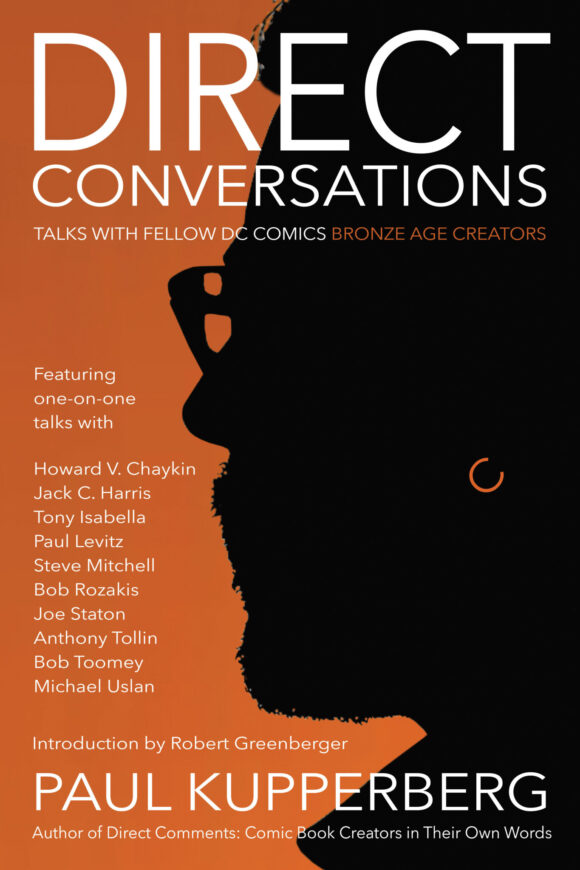The celebrated Mr. K pays a BIRTHDAY TRIBUTE…
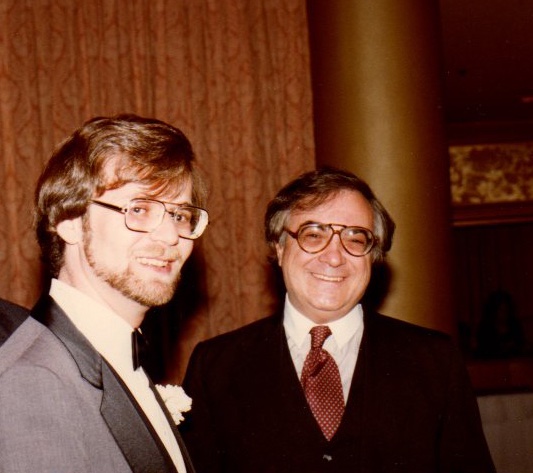
Paul and Joe, at Paul Levitz’s wedding
By PAUL KUPPERBERG
Joe Orlando (April 4, 1927 – December 23, 1998) was one of those multi-discipline talents who for a few decades seemed to pop up in the middle of revolutionary moments in comics history.
In the early 1950s, Orlando was part of the legendary EC Comics crew. In the early 1960s, he joined the growing world of the new Marvel Comics Universe as the penciller on Daredevil and played a pivotal role in the start-up and direction of the legendary Warren Publications black-and-white horror magazines. A few years after that, he was on hand at DC Comics when Carmine Infantino became the new editorial director and opened the stodgy old company to new and fresh ideas. Along the way, Orlando was an artist for such groundbreaking humor publications as Mad Magazine and National Lampoon (for which he drew one of my favorite covers of the magazine’s heyday) and created commercial art, including a famous Nixon era take-off on Superman for Newsweek).

Joe was, in short, a legend. One I’m proud to say I not only knew but who I had the privilege to work with on several occasions. For a while in 1983, I reported to Joe when I was on staff at DC doing public relations (which is around the time of the photo of me and Joe, taken at Paul Levitz’s wedding; I didn’t typically wear a tux to the office, except on pay days), then I worked with him as my editor on the 1986 Super Powers miniseries I wrote (and which Joe also colored). This was the period in which he doodled the “young Jewish writer” portrait of me, and during which I shared “A Comic Moment with” him.
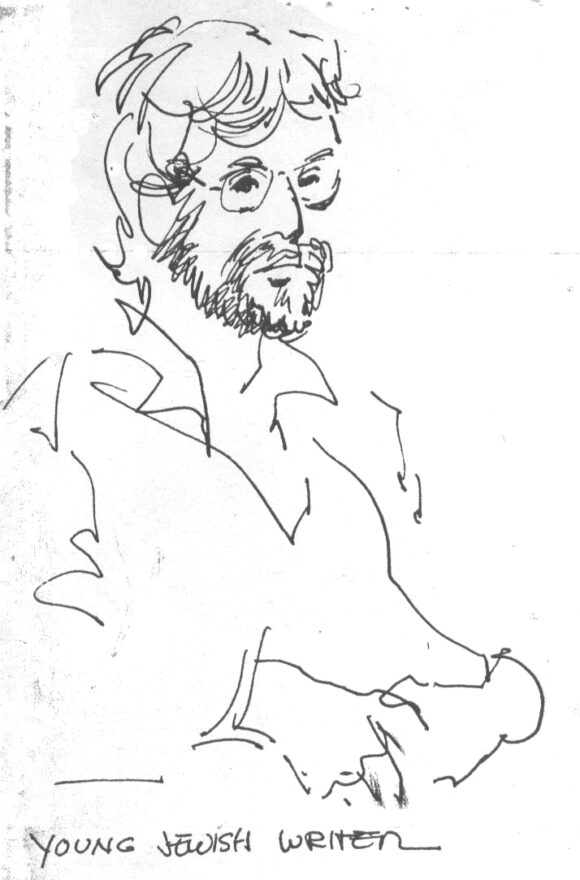
My favorite Joe Orlando story in Direct Conversations: Talks With My Fellow DC Comics Bronze Age Creators was told by then newbie writer Bob Toomey. One day in 1977, Bob delivered a script for a story in Young Love to editor Orlando. “He took the script from my trembling hands, read it, and then, with no expression on his face, said to me the words that would change my life: ‘What makes you think you’re a f**king writer?’ I said, ‘Is there a problem with the story?’ See how quickly I catch on? For the next four or five hours, Orlando told me the problem with that story. All of them! Everybody else went home. It was just him and me, with the last lights on at DC Comics, and he was still doing this panel-by-panel explanation of what I’d done wrong. One of the great educational moments of my life.
“After he finished, we went off together to catch our respective trains, his to Connecticut, mine to Massachusetts, and the last thing I said to him was, ‘So, you want me to do a rewrite?’ To which Joe responded, ‘I don’t give a crap!’ I took that as a yes, and on the train home, I did a rewrite with all this stuff he’d given me fresh in my mind. And when I got home to Springfield, I typed up the script, turned around, got back on the train… and went right back to DC. I gave Joe the rewrite, and he read it right there, [again with] no expression on his face. Finally, he finished it, told me to get up, and marched me down the hall to Jack Harris’ office. He slapped my script on Jack’s desk and said, ‘Make Xeroxes of this and give this to your writers. This is the way a romance story should be!’ I fell in love with Orlando right there.”
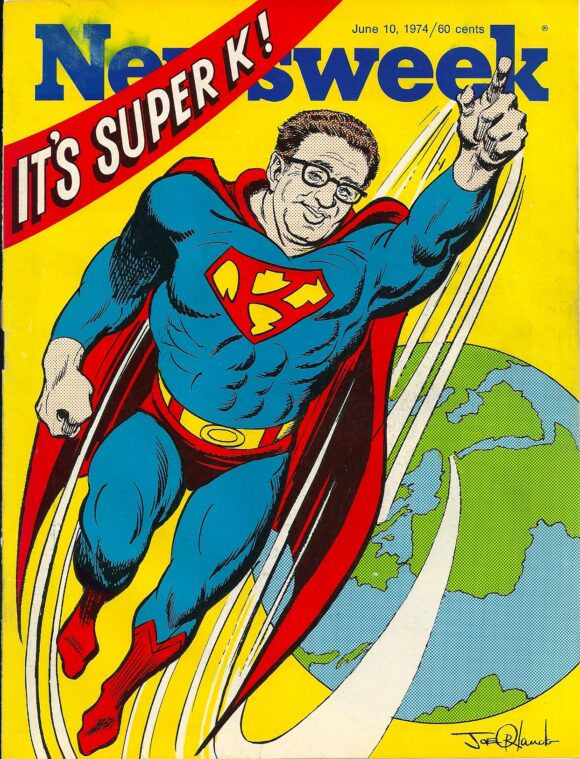
By the way, I just read that Joe was an M.P. in the army, guarding prisoners in the stockade. I can’t think of any better training for his later career as a comic book editor than that! But read all about Joe here — and then check out MY 13 FAVORITE JOE ORLANDO STORIES:
—
Weird-Fantasy #18 (EC, March/April 1953). “Judgment Day,” written by Al Feldstein, is a justifiably famous tale for its tackling of racial prejudice. More than 30 years later, I would unabashedly lift the twist ending of that story for the conclusion of the first story arc in Checkmate. Steal from the best, I always says!

—
Panic #2 (EC, April/May 1954). Joe could draw the funny! “Breakfast with the Fershlugginers” by Al Feldstein.
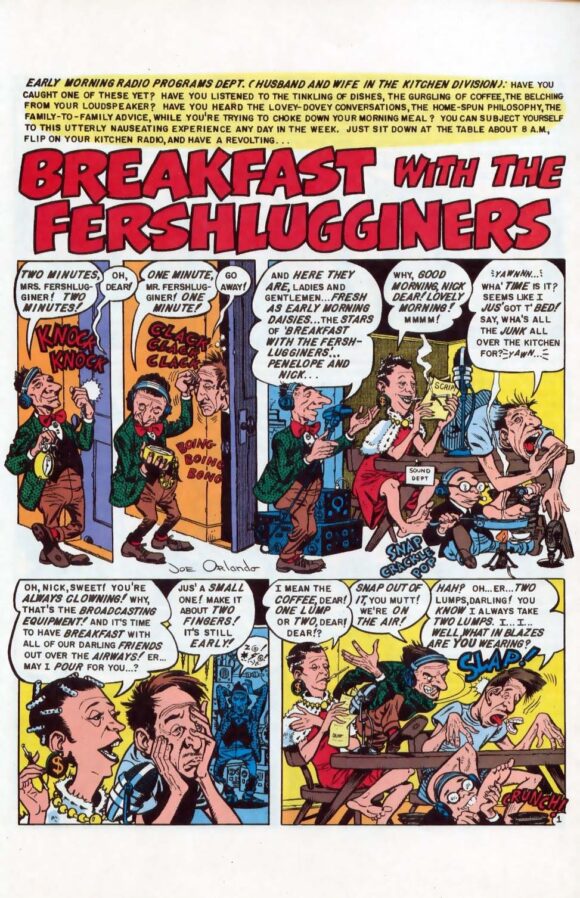
—
Six-Gun Western #2 (Marvel, March 1957). Comedy is tough… but so is drawing horses. “The Last Hour of Hank Borden.”
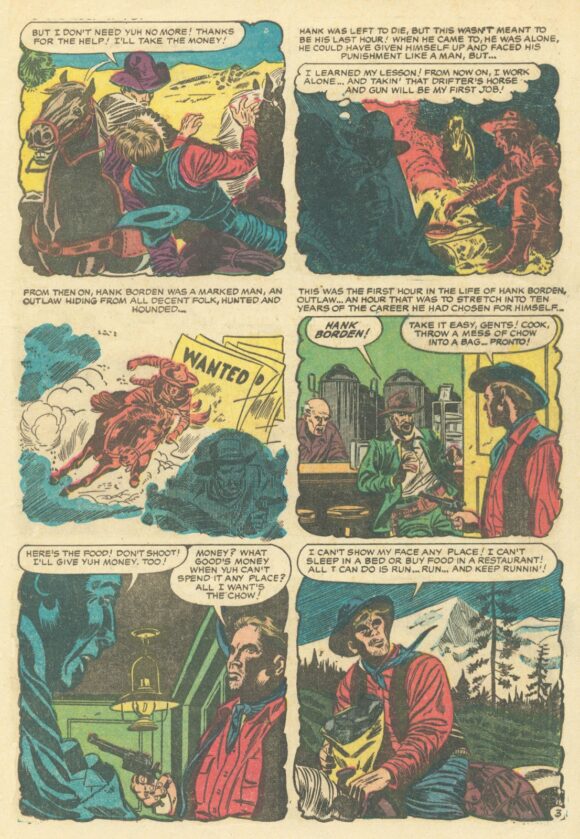
—
Battlefront (Marvel, June 1957). “Crossfire,” a Civil War tale where Joe got to show off some of his illustrative chops.
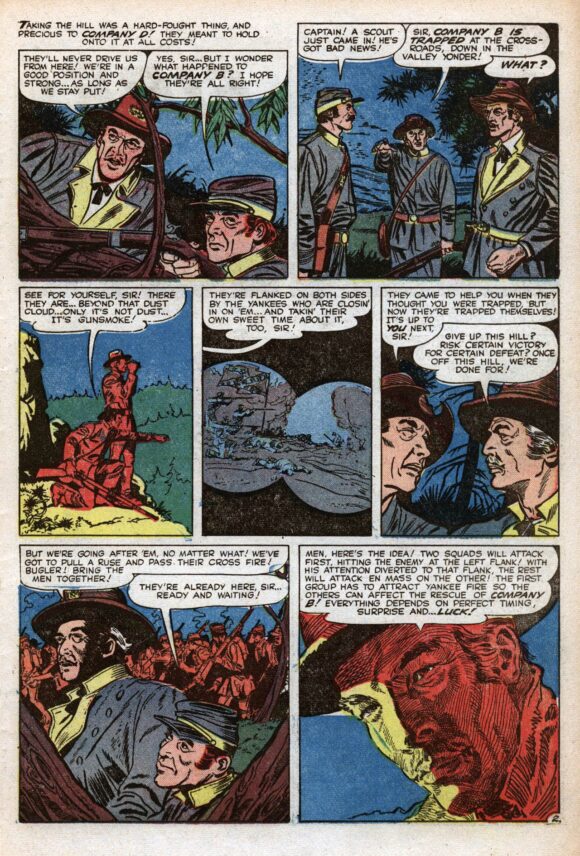
—
Daredevil #2 (Marvel, June 1964). “The Evil Menace of Electro!” by Stan Lee, inked by Vince Colletta. The DD headshot, given to my brother Alan in the early-1970s, is pure Orlando.
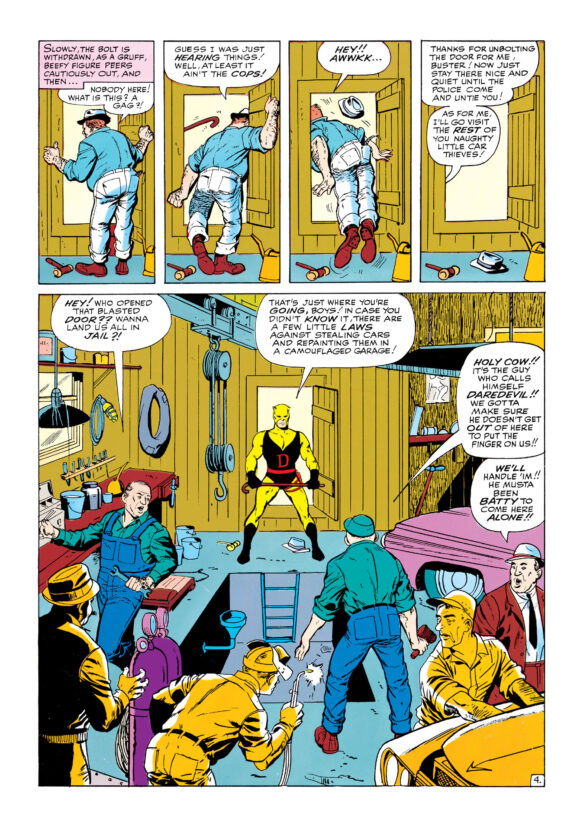
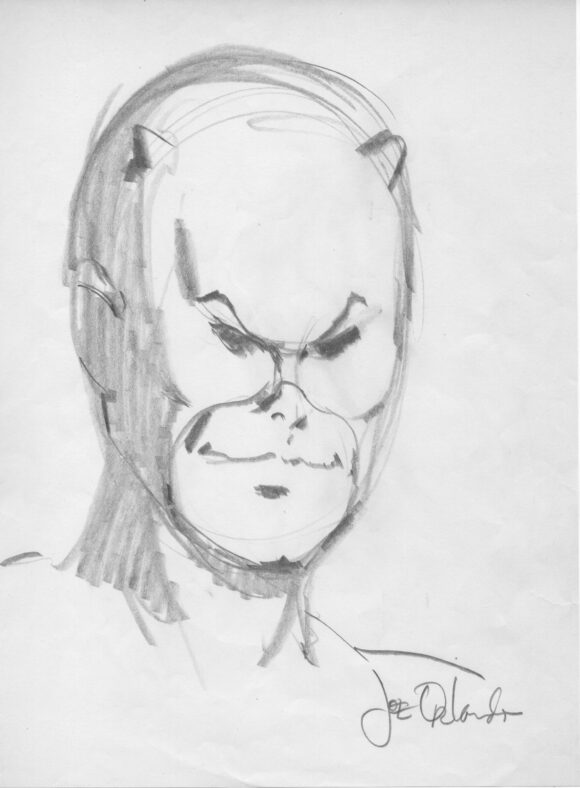
—
Creepy #2 (Warren, 1965). “I, Robot,” adapted by authors Earl and Otto (Eando) Binder and drawn by Joe, was serialized through several early issues of Creepy.
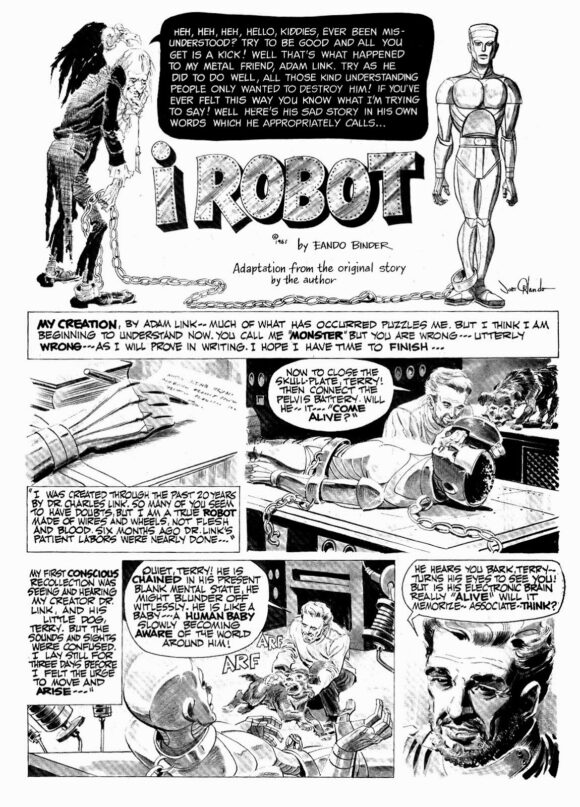
—
Blazing Combat #1 (Warren, October 1965). “Viet Cong,” by Archie Goodwin and Joe, was, like the earlier “Judgment Day,” an early stand in the comics world on a divisive issue of its day.

—
Showcase #62 (DC, May/June 1966). “The Coming of the Costumed Incompetents,” by E. Nelson Bridwell, inked by Mike Esposito. Inferior Five gets my vote for the funniest comic book DC ever published.
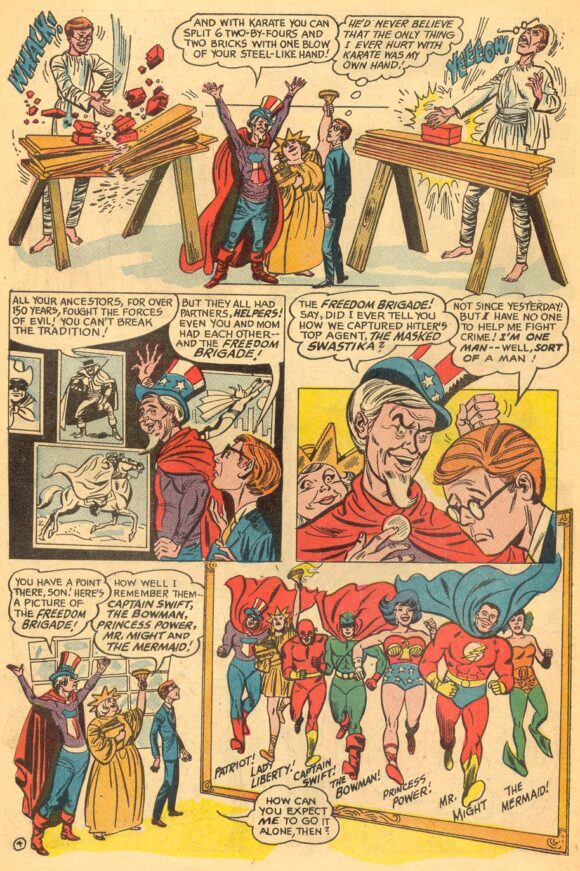
—
Swing With Scooter #1 (DC, June/July 1966). “Here Comes Scooter” by Barbara Friedlander and Jack Miller.
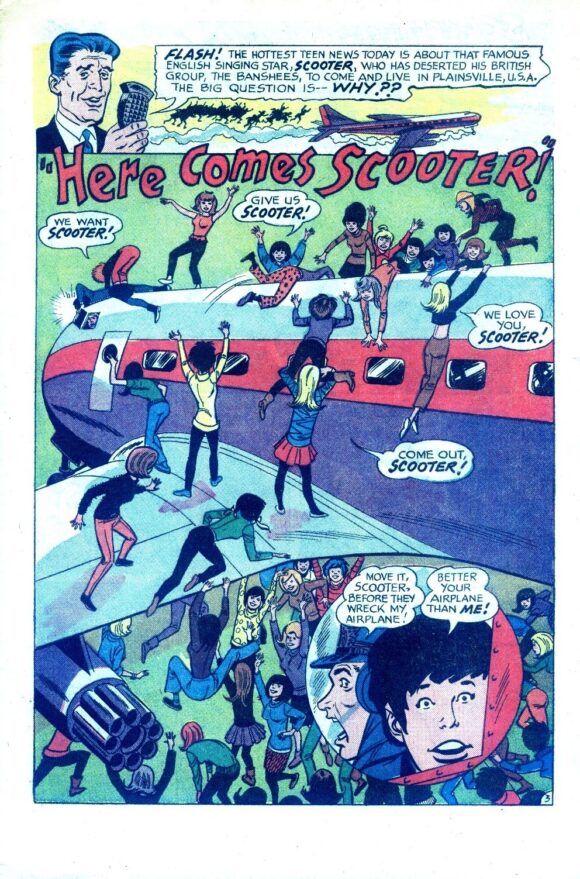
—
Time Warp #2 (DC, December 1979 – January 1980). According to writer Jack C. Harris, “‘Metal’ was completely an EC Comics/Otto Binder/Joe Orlando homage! I was a huge fan of the Eando Binder stories. The very first EC Comic I bought for myself was at John Benson’s 1966 New York comic convention, Weird Science-Fantasy #25 (January/February 1955), which published Orlando’s adaptation of “I, Robot.” Years later, when working on Time Warp, I told Joe I wanted to write a robot story, but only if he drew it. He agreed, and that’s how that story came to be.”
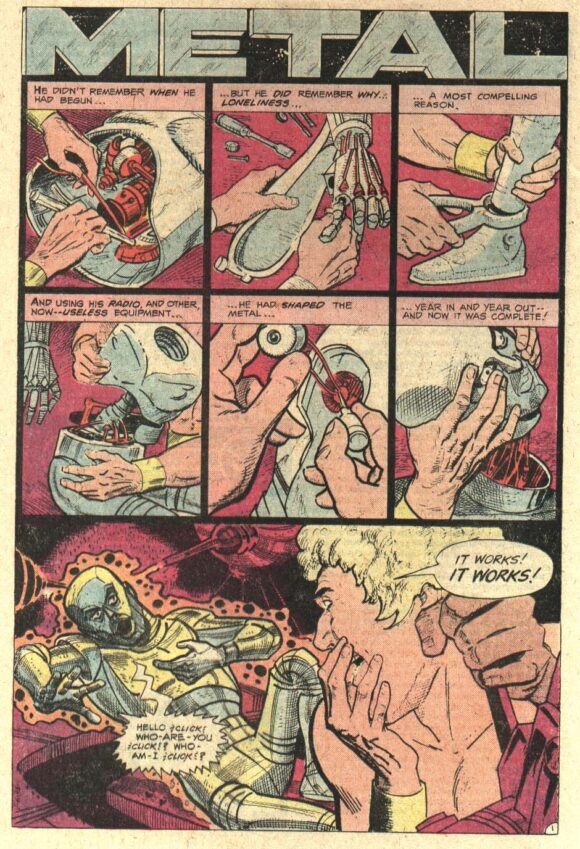
—
Superman #400 (DC, October 1984). Joe wasn’t known for being a superhero artist, but “The Living Legends of Superman,” by Elliot S! Maggin, proves it wasn’t because he couldn’t handle the action.
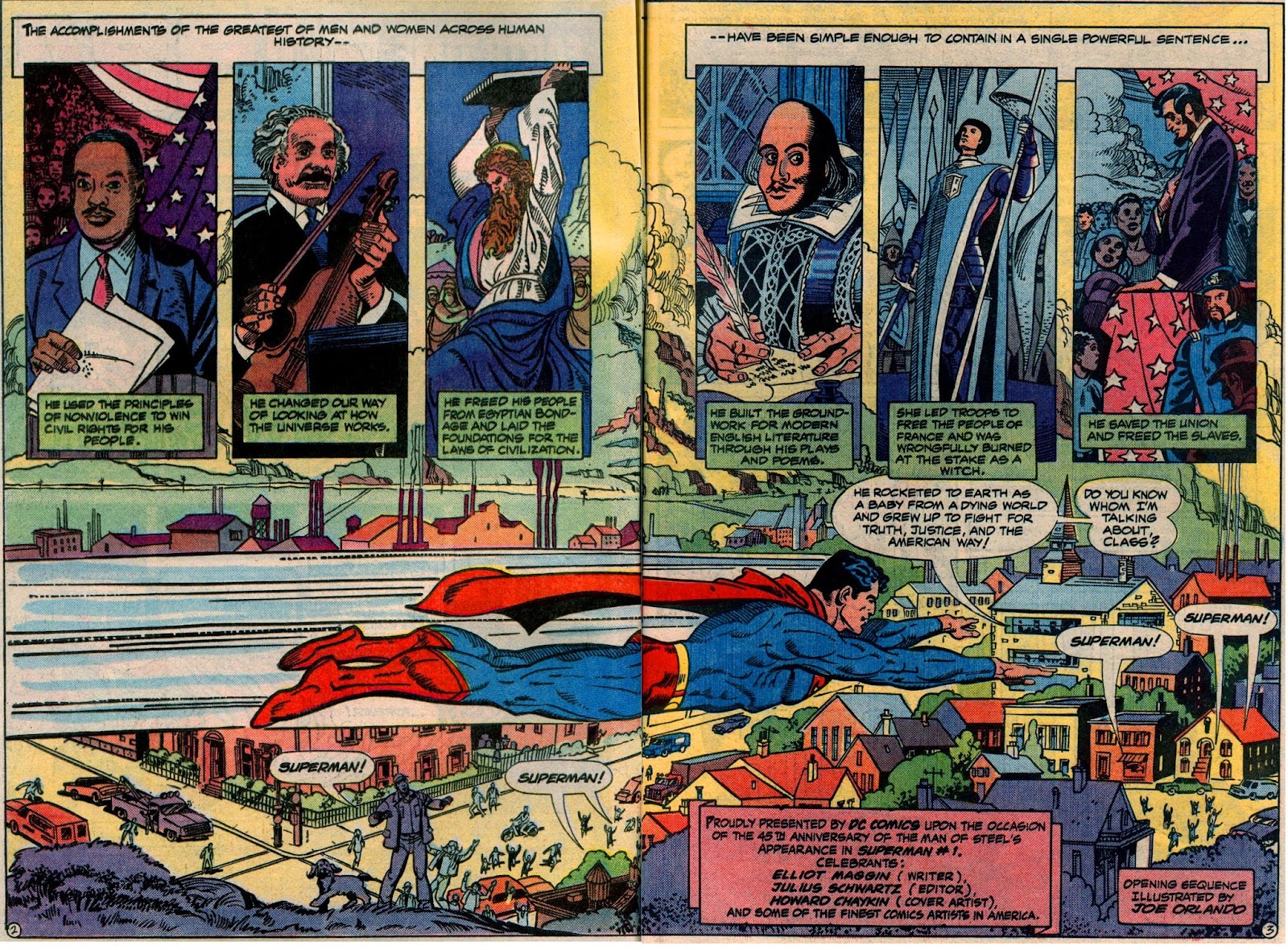
—
Action Comics Weekly #617 (DC, September 13, 1988). I worked with a lot of great artists on the Phantom Stranger feature in Action, but the highlight for me was “Channel Switching,” not only because Joe—the editor who revived the character in the 1960s and guided it through many memorable runs—was the penciller, but because it was inked by Fred Carrillo, another legendary name from the Stranger’s storied history.

—
Wasteland #12 (DC, November 1988). “Titty-Tat Breath,” by John Ostrander — just to show that 35 years after he started, Joe Orlando was still doing some of the best comics around.
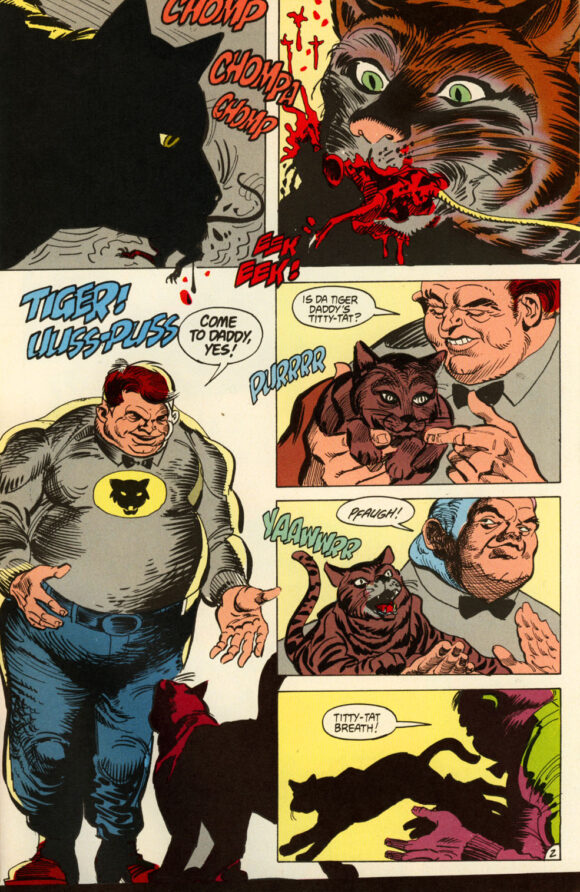
—
MORE
— PAUL KUPPERBERG: A Comic Moment With… JOE ORLANDO. Click here.
— PAUL KUPPERBERG: 13 DC BRONZE AGE Staffers You Should Know More About. Click here.
—
PAUL KUPPERBERG was a Silver Age fan who grew up to become a Bronze Age comic book creator, writer of Superman, the Doom Patrol, and Green Lantern, creator of Arion Lord of Atlantis, Checkmate, and Takion, and slayer of Aquababy, Archie, and Vigilante. He is the Harvey and Eisner Award nominated writer of Archie Comics’ Life with Archie, and his YA novel Kevin was nominated for a GLAAD media award and won a Scribe Award from the IAMTW. Now, as a Post-Modern Age gray eminence, Paul spends a lot of time looking back in his columns for 13th Dimension and in books such as Direct Conversations: Talks with Fellow DC Comics Bronze Age Creators and Direct Comments: Comic Book Creators in Their own Words, available, along with a whole bunch of other books he’s written, by clicking the links below.
Website: https://www.paulkupperberg.net/
Shop: https://www.paulkupperberg.net/shop-1
